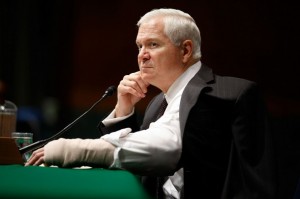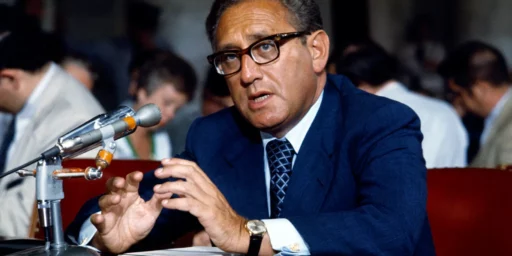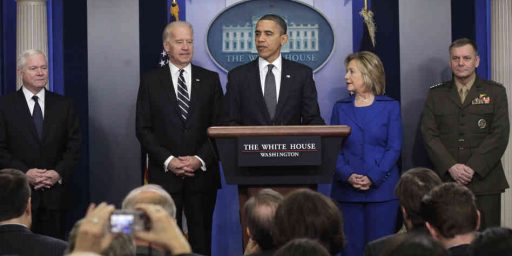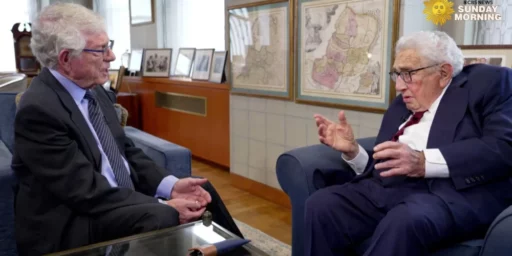Rethinking Afghanistan

U.S. Defense Secretary Robert Gates testifies before the Senate Armed Services Committee on Capitol Hill January 27, 2009 in Washington, DC. Gates served as defense secretary under former President George W. Bush and was asked to continue at that position under President Barack Obama. (Photo by Chip Somodevilla/Getty Images)
My New Atlanticist post “Obama’s New Afghanistan Strategy“details the rather far-reaching reboot of our goals in that conflict as outlined by Secretary of Defense Robert Gates in testimony yesterday before the Senate Armed Services Committee. Two of the three changes recommended — getting Hamid Karzai and our NATO allies to do more — strike me as exercises in futility, for reasons I outline. The third, however, is quite welcome:
The one thing that’s within our ability to change, however, is most important one: setting achievable goals for the mission. As Henry Kissinger told the Council recently, our implied goal in Afghanistan is a democratic state — in the fullest sense of the term, including equal rights for women and religious tolerance — that is centrally governed. Given Afghanistan’s history, he argued that we “need to examine whether this is a conceivable objective.” If Gates’ testimony is any indication, it appears that examination has taken place and resulted in the only plausible conclusion: Afghanistan is simply not going to be a modern, stable democracy within the timeframe that we can sustain a huge commitment of resources.
Given that, Kissinger suggested we “need a different strategy” that is “designed to prevent what we fear most: the return of a terrorist state.” While Gates did not put it quite so bluntly, it looks like that’s precisely our new baseline strategy. It’s not a slam dunk that we can achieve that, either — but at least it’s not tilting at windmills.
Read the rest here.






Apply the same to Iraq. We are not likely to end up with a pro-western, democratic ally which will allow us to build permanent bases there, the original definition of winning. A stable country that does not act as abase for terrorists could be.
Steve